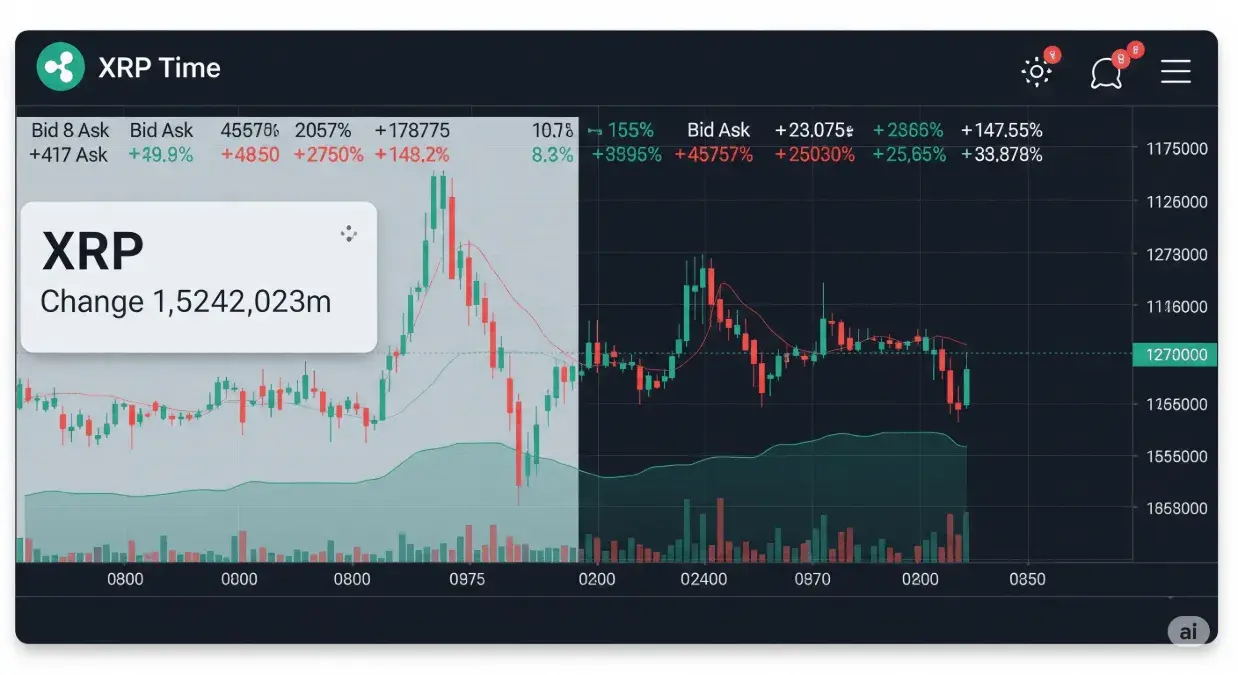CFTC’s Pilot Program for Digital Assets as Collateral

In an exciting move for the future of digital assets and financial markets, the US Commodity Futures Trading Commission (CFTC) is planning to launch a pilot program aimed at assessing the feasibility of using digital assets, specifically stablecoins, as collateral in trading and clearing activities. This initiative, announced by Acting CFTC Chair Caroline Pham, marks a significant step in the integration of blockchain-based assets into the traditional financial sector. The pilot will engage key players in the crypto space, including Ripple Labs, in a bid to explore the practical applications and risks of using these digital assets as part of mainstream financial systems.
Table of Contents
CFTC’s Vision for the Digital Asset Ecosystem
The US Commodity Futures Trading Commission has long been a key regulator of financial markets in the United States, and its involvement in assessing the use of digital assets signals an important evolution in regulatory frameworks for cryptocurrency. By launching this pilot program, the CFTC aims to explore the broader adoption of digital assets, especially stablecoins, in markets traditionally dominated by fiat currencies and other established financial instruments. According to Scott Melker, host of The Wolf of All Streets podcast, this initiative will focus primarily on “tokenized non-cash collateral,” a category under which stablecoins fall.
The CFTC’s focus on stablecoins is particularly notable. Stablecoins, a class of digital assets pegged to the value of a fiat currency (like the US dollar), are seen as essential for bringing greater stability and use cases to the crypto space. By using these assets as collateral, the CFTC hopes to test the practical applications and risks of integrating such assets into the traditional trading and clearing infrastructure.
The Role of Ripple Labs in the CFTC Pilot
One of the most significant aspects of the CFTC’s proposed pilot program is the involvement of Ripple Labs, a leading blockchain-based payment company. Ripple has been actively working with regulators and policymakers to push for the integration of crypto assets into traditional financial systems. Ripple’s technology, particularly the XRP Ledger, has already been used by various financial institutions for fast and low-cost cross-border payments, making Ripple a strong candidate for involvement in the CFTC’s pilot.
Ripple’s participation in the CFTC’s initiative further strengthens its position as a key player in the ongoing debate surrounding cryptocurrency adoption and regulation. It also highlights Ripple’s commitment to collaborating with financial regulators in the U.S. and abroad to create clear and effective regulatory frameworks for the industry.
The CEO Forum and Its Key Participants
To facilitate discussions on the practical applications and risks associated with digital assets in financial markets, the US Commodity Futures Trading Commission will host a CEO Forum as part of the pilot program. The forum will bring together key stakeholders from across the crypto industry, including industry giants such as Ripple, Crypto.com, Coinbase, and Circle. These companies have been at the forefront of driving the adoption of blockchain technology and cryptocurrency, and their involvement in this forum will be crucial for shaping the future of digital assets in the financial sector.
At the CEO Forum, discussions are expected to revolve around how stablecoins and other digital assets could be utilized as collateral in trading and clearing activities, as well as the potential risks associated with such integration. The forum will serve as an opportunity for the CFTC and industry leaders to explore the regulatory, technical, and practical challenges that come with incorporating digital assets into the broader financial system.
CFTC’s Pilot Program: What’s at Stake?
The CFTC’s proposed pilot program represents a significant step forward in the regulatory acceptance and integration of digital assets into traditional financial markets. While there is still much uncertainty around how these assets will be treated in the long term, the pilot will allow the CFTC to test different models and gather critical data that will inform future regulatory decisions.
For Ripple and other companies involved in the pilot, this initiative offers a chance to further solidify their role in the evolving crypto regulatory landscape. As the CFTC works to determine the feasibility of using stablecoins as collateral, Ripple’s continued involvement may lead to more favorable regulatory outcomes for the company and the broader crypto market.
Moreover, the pilot program also highlights the CFTC’s ongoing commitment to modernizing financial markets. By incorporating blockchain technology and digital assets into the traditional infrastructure, the CFTC could help pave the way for more efficient and transparent financial systems.
The Implications of the CFTC Pilot Program for the Crypto Industry
The launch of the CFTC’s pilot program could have wide-ranging implications for the crypto industry. If successful, it could lead to greater acceptance of digital assets by traditional financial institutions, including banks and investment firms. This could ultimately drive further innovation in the financial sector and lead to new financial products and services that utilize blockchain technology.
Additionally, the pilot program could serve as a blueprint for other regulatory bodies around the world to follow. If the CFTC is successful in integrating stablecoins and other digital assets into financial markets, other countries may adopt similar regulatory frameworks to promote the use of digital currencies in their own financial systems. This could help standardize the treatment of digital assets globally and promote international cooperation on crypto regulations.
However, there are risks associated with this initiative. The volatility of certain digital assets, as well as concerns about money laundering and fraud, could complicate efforts to incorporate crypto assets into traditional financial markets. The CFTC will need to carefully assess these risks as part of the pilot program and ensure that appropriate safeguards are in place to protect both investors and market participants.
Ripple’s Role in Promoting Crypto Regulation
Ripple has been a vocal advocate for clear and fair regulations in the crypto space. The company has worked closely with U.S. lawmakers and regulators to ensure that cryptocurrency can be integrated into the financial system in a way that benefits both the industry and consumers. Ripple’s active involvement in the CFTC pilot program highlights the company’s ongoing efforts to be at the forefront of the regulatory conversation.
Brad Garlinghouse, the CEO of Ripple, has built strong relationships with key figures in U.S. politics, including former President Donald Trump. This connection has fueled speculation that Garlinghouse could play a prominent role in the development of U.S. crypto regulations moving forward. Several reports have suggested that Garlinghouse is a potential candidate for a position on the White House’s crypto advisory board, which would give him an even greater influence in shaping the future of cryptocurrency policy.
What’s Next for the CFTC and Ripple?
As the CFTC moves forward with its pilot program, it will be interesting to see how Ripple and other key industry players influence the direction of this initiative. Ripple’s continued involvement in the regulatory process could help shape the future of crypto adoption and integration into mainstream financial systems.
In the coming months, the CFTC will likely provide more details about the structure of the pilot program and its expected outcomes. Stakeholders in the crypto industry will be closely watching the pilot to see how it unfolds and what lessons can be learned from the integration of digital assets as collateral.
Stay tuned for daily cryptocurrency news!
Conclusion
The CFTC’s proposed pilot program to explore the use of digital assets as collateral in trading and clearing activities is a significant development in the ongoing effort to integrate blockchain technology into traditional financial markets. With the involvement of key players like Ripple, Crypto.com, and Coinbase, the initiative has the potential to shape the future of digital assets in the financial sector. As the pilot moves forward, it will provide valuable insights into the challenges and opportunities of incorporating digital assets into established financial systems, paving the way for future regulatory frameworks that could drive widespread adoption of cryptocurrencies.
Frequently Asked Questions (FAQs)
1. What is the CFTC’s pilot program focusing on?
The CFTC’s pilot program focuses on assessing the use of digital assets, particularly stablecoins, as collateral in trading and clearing activities.
2. Who are the key participants in the CFTC pilot program?
Key participants include Ripple Labs, Crypto.com, Coinbase, and Circle, among other stakeholders in the crypto industry.
3. Why is Ripple involved in the CFTC pilot?
Ripple’s involvement helps advance the integration of blockchain technology and digital assets into traditional financial systems, aligning with Ripple’s long-standing efforts to work with regulators.
4. How could the CFTC pilot program impact the crypto industry?
If successful, the program could lead to greater acceptance of digital assets by financial institutions, paving the way for new products and services utilizing blockchain technology.
5. What is the role of the CFTC in regulating digital assets?
The CFTC is responsible for regulating derivatives markets and has taken steps to assess how digital assets, like stablecoins, can fit into traditional financial markets.
6. What are the risks of using digital assets as collateral?
The risks include the volatility of digital assets, potential for fraud or money laundering, and the need for strong regulatory oversight to ensure market stability.





